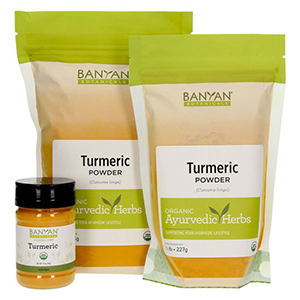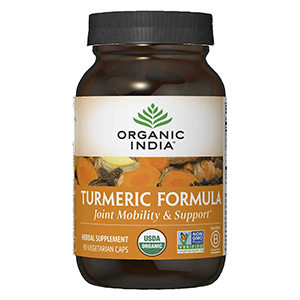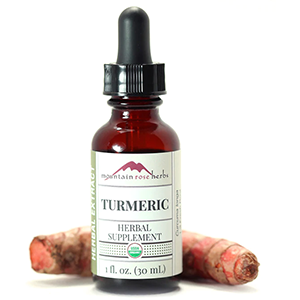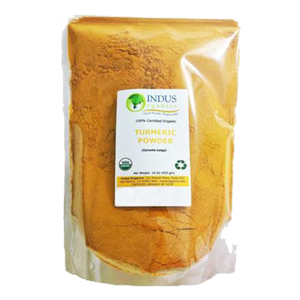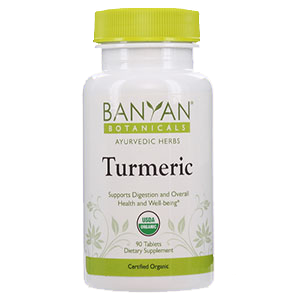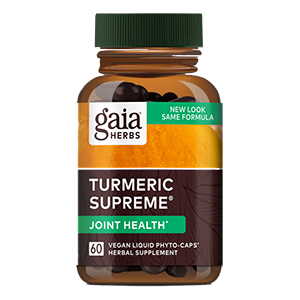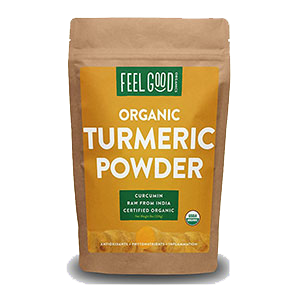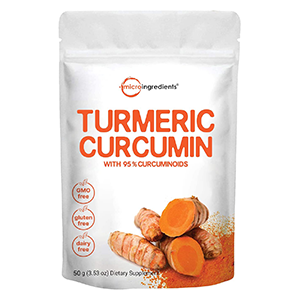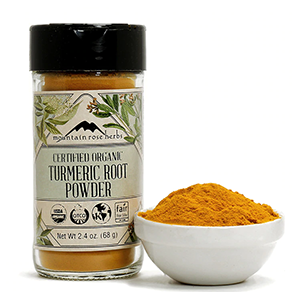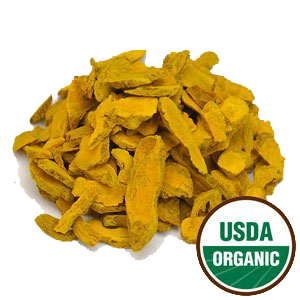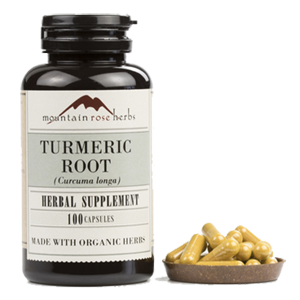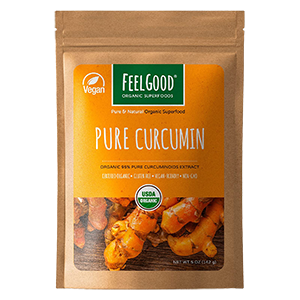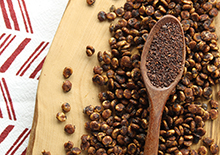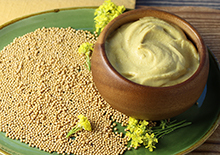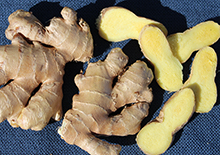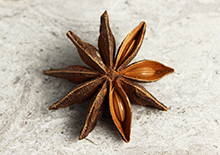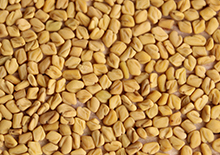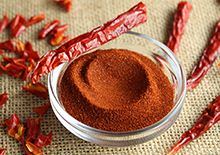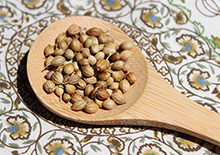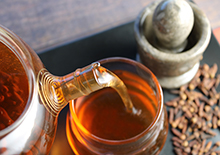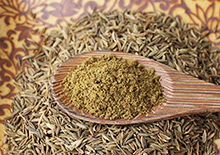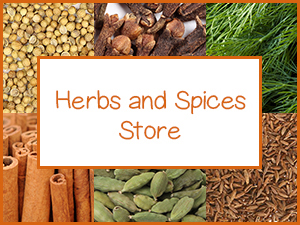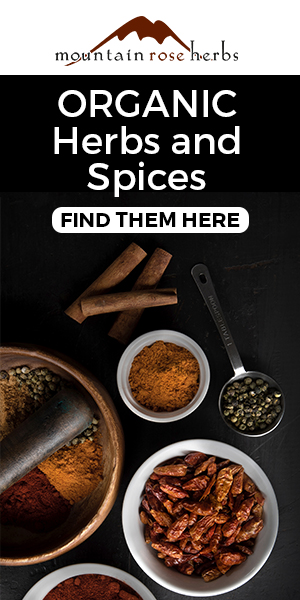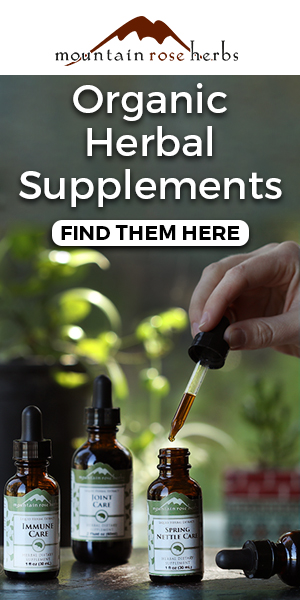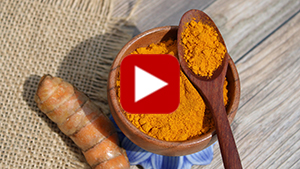- Home
- Herbs and Spices
- Health Benefits of Turmeric
Top 2 Health Benefits of Turmeric, What the Research Says
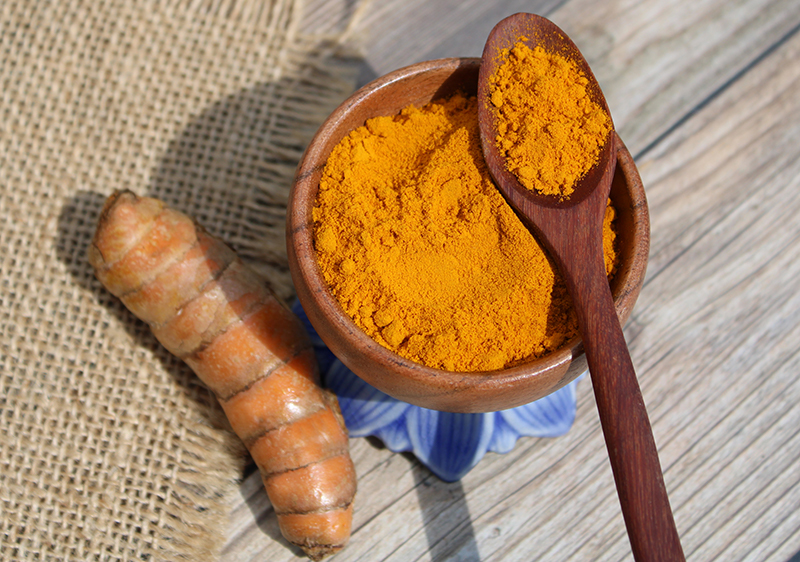
The amazing health benefits of turmeric root (Curcuma longa) come from its bright yellow-orange phenolic antioxidant known as CURCUMIN. This is the main component known to provide for turmeric's impressive array of useful properties.
Here are the top two most profound science-based ways that adding turmeric spice and/or a turmeric curcumin supplement to the diet can be a medicinal helper on your healing journey. We'll also discuss how to take turmeric and the best ways to use it for optimal results.
1) Health Benefits of Turmeric for Inflammation
Table of Contents
Intro | Health Benefit #1 | How to Take for Best Results | Health Benefit #2 | Precautions | Shop
One of the most popular uses of turmeric is as a natural ANTI-INFLAMMATORY utilized for its pain-lessening features.
Turmeric root contains three main curcuminoids: curcumin, demethoxycurcumin and bisdemethoxycurcumin, all of which have anti-inflammatory activity. Curcumin, however, makes up about 80% curcuminoids and is therefore the compound most researched.
Specifically, curcumin is valued for its benefits to healthy joints and conditions like rheumatoid arthritis. (*)
Curcumin is reported in vivo and in vitro, to have excellent anti-RA characteristics by inhibiting certain pro-inflammatory factors and signaling pathways.

Turmeric is likewise often a main ingredient used in dietary or herbal supplements for joint support. When taken in supplementary doses it's known to soothe and nourish the joint tissues and encourage comfortable movement.
Before we discuss the health benefits of turmeric #2, here is important information on how to take turmeric you may want to know about.
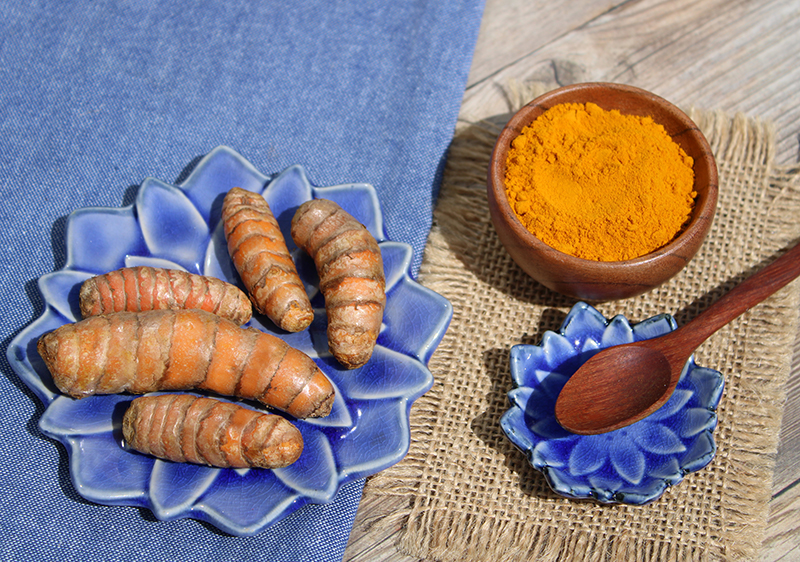
How to Take Turmeric for Best Results
Incorporating turmeric into the diet is a great way to get some of the benefits that curcumin has to offer.
On average, two teaspoons of turmeric powder will contain about 400 mg of curcumin. Using fresh turmeric root is also very potent and can be used in recipes or to make a therapeutic tea.
However, the curcumin in turmeric is more absorbable when turmeric is consumed with black pepper. That's because the piperine compound in pepper naturally enhances curcumin uptake. Not just a little, but A LOT. In fact, some research gives evidence that it can boost overall absorbability of curcumin by 2,000%. Black pepper is therefore often an ingredient in many turmeric supplements.
Likewise, a turmeric/ginger combination (common in the infamous golden milk recipe) can also be of benefit for this purpose. Using a mixture of turmeric and ginger has been studied for its increased anti-inflammatory potential.
Heat preparation of turmeric as well as consuming it with some kind of fat, like coconut oil or ghee, can also greatly enhance the bioavailability of the curcumin compound because of its fat solubility.
Turmeric is also available as an extract powder standardized to contain 95% curcuminoids. These herbal products usually go by the name "Turmeric Curcumin" or "Pure Curcumin".
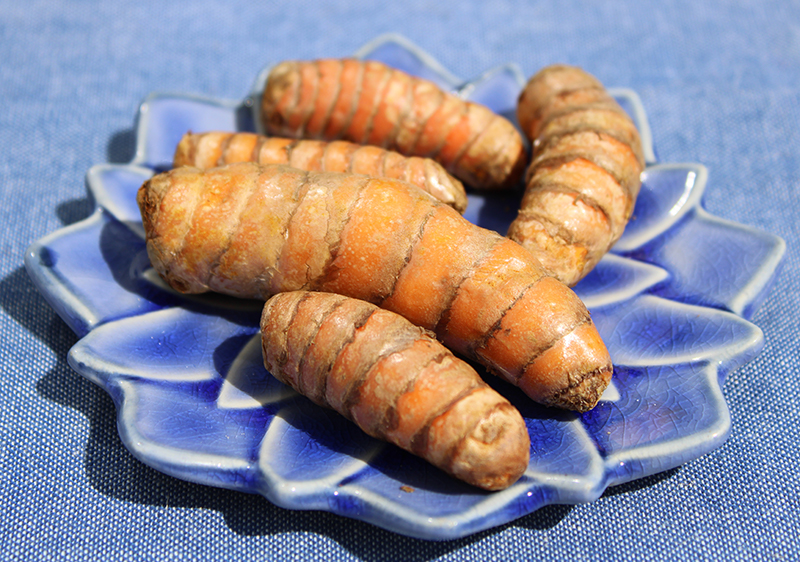
2) Health Benefits of Turmeric for Cognitive Support
There has been quite a bit of research about the different ways that turmeric and curcumin extracts have been used to foster cognitive brain functions.
One of these is for depression (*) and the other is for its potential neuroprotective properties. (*)
For Depression
The curcumin compound in turmeric root has been widely studied for its effects on the nervous system and its ability to inhibit monoamine oxidase. This is a well-known enzyme crucial to the depression-correlated neurotransmitters serotonin and dopamine and their metabolism and uptake in the brain.
Furthermore, in research using curcumin for improving chronic pain-induced depression, its actions on lipid metabolism were thought to be involved.
Likewise, in a recent 2020 study, curcumin was found to offer relief for chronic mild stress-induced depression in rats tested.
For Neuroprotection
The turmeric and curcumin combination has been significantly researched for its neuroprotective influence on cognitive functions.
Of course, one of the main health benefits of turmeric is its anti-inflammatory actions and inflammation is often involved in age-related neurological decline and health-related issues. (*)
But another attribute that makes curcumin especially suitable for certain associated disorders is its studied impact as a metal ion chelator and liver cleansing agent.
In some science, it has been identified to help remove aluminum, an often-implicated toxin involved in certain degenerative diseases. (*) In addition, curcumin is reported to reduce toxic levels of arsenic, acrylonitrile, lead and cadmium.
Precautions:
Excessive amounts of turmeric are best avoided during pregnancy and when nursing. Always consult your health care professional prior to using turmeric powder or supplements if you are taking any type of medication or have a serious medical condition.
Shop Related Products (About Affiliates & Amazon Associate Paid Links)
Affiliate Disclaimer: This section contains affiliate product links. If you make a purchase through our recommended links, we receive a small commission at no additional cost to you. Thanks for the support.

